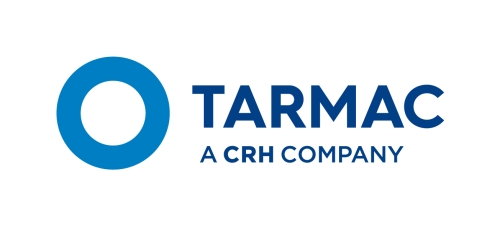health and safety
Achieve a Lost Time Injury Frequency Rate (LTIFR) of 0.5 or less and Total Recordable Case Frequency Rate (TRCFR) of 1 or less
“We must be vigilant in our focus on our own safety, and the wellbeing of colleagues and contractors. Tarmac is a business where no job is done unless it can be done safely.”
Martin Riley, Senior Vice President, Materials
We are committed to achieving our policy of Work Safe Home Safe which places an emphasis on embedding a culture that puts the health and wellbeing of our people, the people that work alongside us and the communities we work in at the centre of what we do.
Providing a safe and healthy working environment for employees, contractors and the wider community is fundamental to building our future.
highlights
We constantly monitor and report on the safety performance of all our operations and include our employees, contractors and contract hauliers in our safety performance data. Across our business operations there were 47 recordable incidents giving a Total Recordable Case Frequency Rate (TRCFR) of 1.64 incidents for every million hours worked in 2019. Our Lost Time Injury Frequency Rate (LTIFR) was 0.87 in 2019 with the total lost time injuries reported being 25 during the period. We remain committed to further driving continuous improvement to reduce rates and achieve our commitment to Work Safe Home Safe.
Our continued focus on improving health and safety performance was recognised at the Mineral Products Association (MPA) Health & Safety Awards 2019, for excellence in both projects and individual’s contributions and the overall Tarmac business was successful in being awarded the prestigious John Crabbe trophy for outstanding occupational health and safety performance.
Tarmac has also been recognised for its occupational health and safety activities with an achievement award in the 2020 RoSPA Awards. The award is recognition of the efforts of all at Tarmac to improve safety, health and wellbeing in 2019 at work and at home and recognises our collaboration with contractors and other interested parties on this important issue. We are exceptionally proud of this achievement and will look to build upon this in 2020.
Our strategy for improving health and safety and achieving our commitment to Work Safe Home Safe continues to be outlined in our 2021 Health and Safety Roadmap and focuses on four strategic pillars:
1. Leadership and culture
Setting the standards, leading by example, training and developing knowledge and competence of frontline supervisors.
2. Management systems
Continuing to embed our health and safety management systems and controls across the business. And managing the transition to the international occupations health and safety standard ISO 45001.
3. Communication
Maintaining a robust health and safety communications framework. Encouraging shared learning and preventive action following an incident.
4. Assurance and governance
Establishing risk / opportunities registers. Focusing on root cause and streamlining management review and reporting tools.
Employee engagement and collaborative working remain essential elements for improving our health and safety performance. In 2019, our senior leadership interaction with operational teams across the business increased by 230%, driving greater focus on visible felt leadership and improving employee engagement at all levels within the Tarmac business. In addition, our wider employee engagement and face to face interaction programme (safety visits and interactive safety conversations) provided clear benefits and will continue to be a leading measure in 2020.
2019 year saw the first training programmes being delivered at the Tarmac National Skills & Safety Park. The Park, which was officially opened by HRH The Duke of Cambridge in February 2020, provides essential classroom and practical training resources to support learning and development of operational employees and all new starters, helping to embed the CRH Life Saving Rules and Tarmac health and safety standards. The Park allows new employees to gain hands-on, practical experience in a realistic workplace setting but under controlled conditions.
From November 2019 to February 2020 along with the rest of the CRH group we implemented health and safety campaigns with a specific focus on core safety related topics including fire, hot works, process safety and mobile phones. A detailed fire risk assessment review of all high-risk operations was also undertaken to evaluate controls and take appropriate steps to mitigate fire risks where appropriate.

The health of all our employees is a fundamental priority for Tarmac. Throughout the year, we have continued to focus on raising awareness of the importance of mental health and wellbeing within the workplace and at home. We have trained people and created a network of ‘mental health first aiders’ across our business. In addition, we have delivered a series of campaigns on a range of mental health topics at offices and operational sites to promote awareness and to challenge accepted norms regarding mental health and wellbeing. Our work on raising awareness of mental health and promoting open discussions is further supported by our commitment to the charity ‘Mates in Mind’ and the Tarmac employee assistance line, designed to provide impartial and confidential support to employees on any topic.
During 2019, Tarmac launched LifeWorks, which is the new Employee Assistance Provider (EAP) available for employees and families at any time, 24 hours, seven days a week to support with real, practical help. LifeWorks can support mental, physical, social, and financial wellbeing, and can help with quitting smoking, eating healthier, struggling with stress or anxiety, and can be used for some help managing a big change or challenge in an employee’s life.
Tarmac is a leading advocate of the Mineral Products Association (MPA) Safer by Competence industry programme which places zero harm as the overarching health and safety priority for the mineral products industry. As part of this sector-leading drive, the MPA continues to operate the ‘Safer by Competence’ policy to deliver demonstrable personal competence across its members. ‘Safer by Competence’ sets out routes to meeting National Occupational Standards relevant to specific roles, with a range of targets applicable to all operational employees. Tarmac provides employees with the opportunity to gain National Vocational Qualification (NVQ) / Qualifications and Credit Framework (QCF) / Scottish Qualifications and Credit Framework (SQCF) vocational qualifications as the basis for demonstrating competence.
During 2019
- 100 operational employees completed their National Vocational Qualification (NVQ);
- 2099 mobile plant assessments were completed, and the first cohort of operators completed the Tarmac Professional Operator Development Programme.
In 2020 we will complete our transition to the new ISO 45001 Occupational Health and Safety standard and identify opportunities to integrate our core management systems elements as part of our ongoing shared document management programme. Our health and safety strategy will continue to contribute delivery towards the 2021 roadmap and further opportunities will be taken to embed safety within our business strategy. Health and wellbeing will represent a significant area of focus during the year and work to raise the importance and profile of mental health and wellbeing is well underway.
